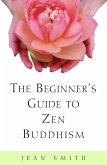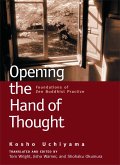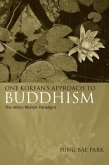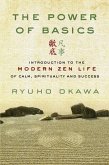On its own, the invitation to taste poison is phenomenally bad advice, but as encouragement to engage with your more difficult emotions and to address your discontent at its source, in your mind, it can change your world. A big part of practicing mindfulness is remembering to do it. Our physical senses of touch, sound, smell, sight, and taste are constant reminders for us to become aware of where and when we are. Every moment is an opportunity to awaken awareness and if suffering is part of that awareness, to consciously generate compassion in response. The essays in this book use ideas from Zen Buddhism, mindfulness, and meditation practices to encourage engagement with suffering, to look for its sources in thinking and self, and to find liberation in the process. When we learn to recognize the flavors of the poisons in our lives, we can practice working with them to help us feel better and to benefit all beings.
Hinweis: Dieser Artikel kann nur an eine deutsche Lieferadresse ausgeliefert werden.
Hinweis: Dieser Artikel kann nur an eine deutsche Lieferadresse ausgeliefert werden.








